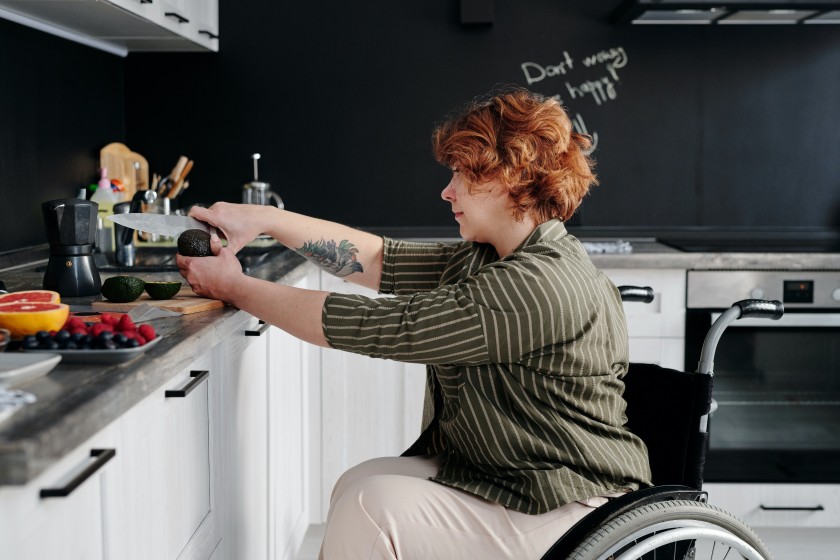Mindful Eating During COVID-19
Published: Apr 23, 2020By Jennifer Crabtree

While exploring a whole new meaning to the term ‘homebody’, you may notice it creating some tension between you and your health goals. Mindlessly wandering into the kitchen, snacking on the couch, munching on something while working, or grabbing bites of your child’s leftovers can all add up over the course of the unknown timeline of the 'Safer-at-Home' recommendations. These snacking or overeating behaviors may be due to boredom, stress eating, loneliness, or just easy access.
If you catch yourself falling victim to the 'Quarantine-15' (gaining 15lbs while at home- oh no!), check out these Mindful Eating Tips from our healthcare experts at the TGH + USF Bariatric Center:
Identifying emotional eating versus physical hunger
Dr. Rebecca Chermak, PSYD
Clinical Psychologist
“Physical hunger tells us what our body needs whereas emotional hunger tell us what our brain/heart needs. Sometimes it can be hard to tell the difference! Here are some key distinctions: Physical hunger doesn’t go away if you try and wait it out, it can only be taken away by eating, and you can eat almost anything to be satisfied. Emotional hunger looks a little differently: You’re craving something specific or comforting, the craving typically goes away over time if you distract yourself, and urges may feel very strong if you’re anxious, upset, or lonely. It is very common to feel emotionally hungry during these heightened times of stress, social isolation, and boredom. Think about what your brain/heart are actually looking for. Try some other coping strategies that may help make you feel better such as turning off the news, reading, drawing, going for a walk, doing a puzzle, or calling a friend.”
Managing Work from Home with Kids
Amanda Musin, RDN, LD
Clinical Nutrition Specialist
“I find that many families have abandoned their usual packed lunches and planned dinners for a figure-it-out-as-we-go approach when this pandemic first started. While this newfound freedom to eat anything at any time is fun at first, it can create disorder as time goes on. I challenge families to create a new routine rather than waiting for things to return to normal. Start by planning the day to include times for meals and snacks. Then include simple focuses like ‘eat a vegetable at every meal’, ‘eat variety of colors’ or ‘drink a glass of water each hour’. These guidelines can create mindfulness around food choices and ensure meals and snacks remain nutritionally balanced and, ultimately, more satisfying.”
Slow Down Meal Time to Improve Satisfaction
Devin Steele, RD, CSOWM, LD
Clinical Nutrition Specialist
"When home much more often right now, it’s very normal to catch yourself snacking a little extra here and there. Putting mindful eating techniques into practice can really help. For example, try to choose at least one meal out of the day where you can really zone in on your meal and remove distractions (TV, scrolling through social media, etc). Take a full 30 minutes to slow down and consume your food. It takes about this long for your brain to register the “I’m full” signal from your stomach to prevent overeating. Taking 30 minutes will also allow you to appreciate the texture, smell, and taste of the food to improve satisfaction. In turn, chances are you will be less likely to reach for a snack soon after dinner is over! Another key is to ensure you can identify a protein source at each meal and snack to improve longer term satiation. Adequate protein, fiber, and fluids on a daily basis will take you far in terms of satisfaction, less snacking, and making it through our quarantine!
The TGH + USF Bariatric Center is committed to helping those seeking services during this time of need. We offer surgical and non-surgical weight management programs and continue to accept new patients through our virtual healthcare platform. Please call us at 813.844.7473 for more information.
